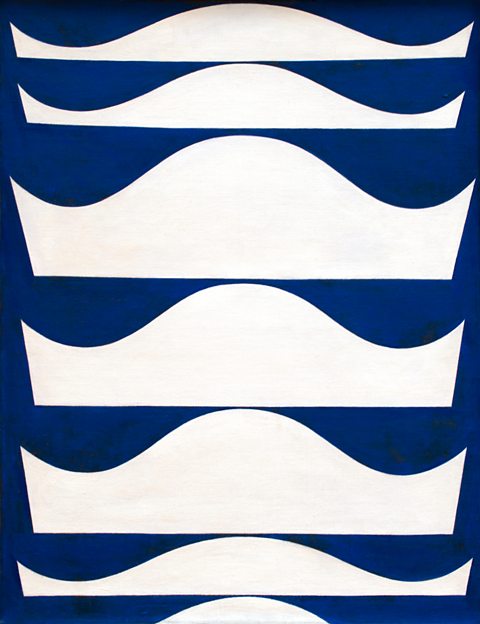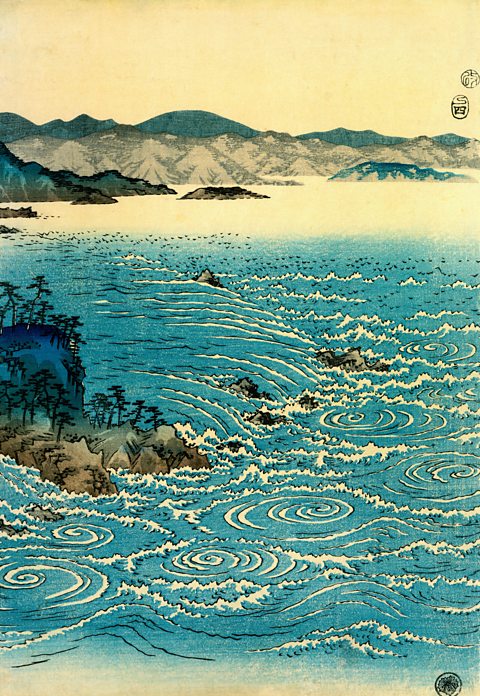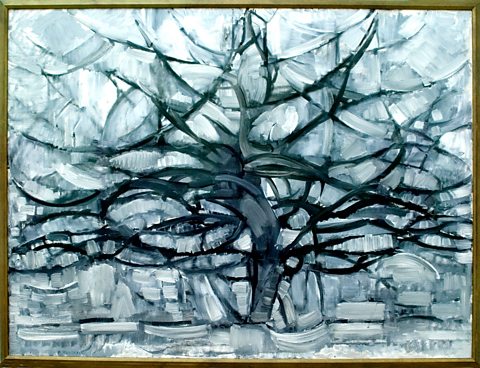Irregular pattern
An irregular pattern is one in which the motif changes or the way it is repeated is unpredictable.
Antoni Gaudi created benches in Parc Guell in Barcelona using broken tiles that were arranged to form an irregular pattern. There is no set pattern, but we can see elements of motifs that are spread out to give the impression they are repeating.

Image caption, Bench in Park Guell, Barcelona, Antoni Gaudi, c.1900-14, Yury Zap / Alamy Stock Photo
Image caption, Detail of Banc de Trencadis, Sala Hipostila, Parc Guell, Antoni Gaudi c.1900-14, Lonely Planet Images / Getty Images
1 of 2

In Echelonnement (1934), Sophie Taeuber-Arp has taken a simple white shape as her motif and repeated it against a blue background.
The pattern is irregular because the height of the shape changes each time it is repeated.


View of the Whirlpools at Awa (Utagawa Hiroshige, 1857) features a spiral motif. This is repeated in an irregular arrangement and the size and number of turns in the spiral changes each time.


The Gray Tree (Piet Mondrian, 1912) is composed from an irregular pattern of curving brush strokes. These lines act as a motif that is repeated in different sizes and at different angles to suggest the random arrangement of branches in a tree.